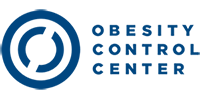
Lindsay
-
Posts
818 -
Joined
-
Last visited
-
Days Won
24
Content Type
Profiles
Forums
Blogs
Events
Gallery
Articles
Media Demo
Posts posted by Lindsay
-
-
Although I have a background in fitness and nutrition, I'm shocked at the number of posts that include many diet myths ...
including 'cutting out carbs' will help you lose weight. if anything, you'll be dropping water.
The reason why Atkins has been so successful is because with participants eating so much (more) protein and fat, they actually consume LESS CALORIES than if they were eating 'regularly'. That's why they lose weight.
While there will always be debate on ketosis, and it's result, it's recently been proven with scientific results, this as false. Ketosis is NOT the result of weight loss during the Atkins program.
Eating healthy doesn't have to be a DIET.
A rule of thumb:
"If you can’t kill it, grow it, or pick it, you probably shouldn’t be eating it!"
Lean Cuisines, ect are handy, but full of artificial preservatives, and I won't get into the salt content.
Same applies for many protein/whey powders.
Learning how to prepare small meals that are full of nutrients REQUIRED to fuel your body is crucial during your weight loss period.
With the amount of exercise you'll be doing, your body need food for FUEL.
You are now eating for ENERGY.
There are many reasons that weight loss may stall, but none of them are trivial.
Unless you have a medical condition (thyroid issues, etc) there is no reason you can't figure out how to kick start it ...
Manipulation of your protein and fat intake will also play a key role.
By exploiting your body’s insulin levels via cycling your daily carbohydrate intake, you can maximize its anabolic (muscle building) and anticatabolic (muscle sparing) effects while minimizing its ability to store fat and maximizing your body’s ability to burn fat. by exploiting your body’s insulin levels via cycling your daily carbohydrate intake, you can maximize its anabolic (muscle building) and anticatabolic (muscle sparing) effects while minimizing its ability to store fat and maximizing your body’s ability to burn fat.
Anyways.
I'm obviously new here, but again, I'm shocked at the lack of knowledge floating around in this forum.
-
What kind of protein shakes did you drink every morning and what kind of proteins did you eat for dinner and supper? I am following almost the same kind of diet, but with carbs. Maybe I need to cut out the carbs.
This is an interesting 'theory' but it's not carbs that are making you hold weight.
what sort of carbohydrates are you taking in? cut oats, white rice, ect?
what are you nutiritonal ratios? protein/fat/carbs)
what is your fitness/exercise looking like?
i find it interesting that people that have had this surgery are still following a very unstable diet - with very little nutritional information on what they're really eating, and WHY they need to take in carbs/fat/proteins.
-
I have my surgery booked!
I"m having mine on Tuesday March 10th, and I'm beyond excited!

Suggestions of what to take to TJ for surgery
in Questions
Posted
The American Heart Association (AHA) stated in 2001 "Individuals who follow these (high protein) diets are risk for potential cardiac, renal, bone and liver abnormalities overall." This sweeping statement must cause concern and in turn deter many people from following an Atkins type high protein diet plan which incorporates a reduction in carbohydrate intake.
The justification of such a statement is unclear as there is no scientific evidence that high protein intake has adverse effects on liver function. Relative to renel function there is no scientific ducumentation to support the theory that healthy kidneys are damaged by the increased demands of protein consumed at 2 - 3 times the Recommended Daily Allowance (RDA). A study by Portman Dellalieux investigated bodybuilders and other highly trained athletes with medium to high protein intakes. The athletes underwent a 7 day nutrition record analisys as well as blood sample and urine collection to determine the potential consequences of such a diet. The subsequent data showed despite higher uric acid and calcium the athletes had renal clearances of creatinine, urea and albumin which were al considered to be within a normal range. This admittedly short study was done with protein ingestation of up to 2.8gr/kg of bodyweight, 3.5 times as much as the recommended daily allowance.
In contrast to the theory that a high protein diet promotes osteoporosis, there has been some epidemiological studies showing a positive effect of protein intake and bone mineral density, further to that recent studies suggest over a short period the RDA of 0.8gr/kg of protein does not support calcium homeostasis.
Finally a negative relationship has been found between protein intake and blood pressure in several epidemiological surveys(Honolulu Heart Study 6406 cases studied, Chinese Study 2672 cases and MRFIT Study with 11342 adult males studied), all these factors show there is little if any hard and fast scientific evidence to support the above AHA statement. For healthy individuals with normal renal function the risks of a high protein diet are minimal.